If you’re an avid RVer, you’ve probably come across the term GVWR, which stands for Gross Vehicle Weight Rating. But do you truly understand its significance? GVWR indicates the maximum weight that a vehicle can safely handle when fully loaded, encompassing everything from the vehicle’s own mass to the cargo, passengers, and onboard facilities.
This rating isn’t just a suggestion—it’s a crucial guideline that every RVer must adhere to for the sake of safety. Ignoring this weight limit can lead to severe consequences, including decreased fuel efficiency, increased wear and tear, and, most alarmingly, a heightened risk of accidents on the road.
This article delves into the essence of GVWR, its implications for RVers, expert insights, and practical steps to ensure your RV remains within the recommended weight limit. After all, the key to memorable adventures is not just where you go, but ensuring you get there safely.
GVWR Meaning: What Is It?
GVWR, or Gross Vehicle Weight Rating, is a term every RVer should be intimately familiar with. GVWR represents the maximum allowable weight of a fully loaded vehicle, including the vehicle’s own weight, passengers, cargo, and in the case of RVs, all onboard amenities and supplies.
For those driving trucks with travel trailers or fifth wheels, the GVWR is crucial in determining if your truck can safely and legally tow your trailer. Motorhome drivers aren’t exempt either; they need to be aware of their rig’s GVWR to avoid overloading.
Exceeding this weight can lead to significant wear and tear on your vehicle, reduced fuel efficiency, and, most importantly, compromised safety on the road. As seasoned RVers, it’s imperative to understand and respect the GVWR of your rig. After all, our adventures should be memorable for the right reasons, and adhering to weight limits ensures a smoother, safer journey.
Why Understanding GVWR is Essential for RVers
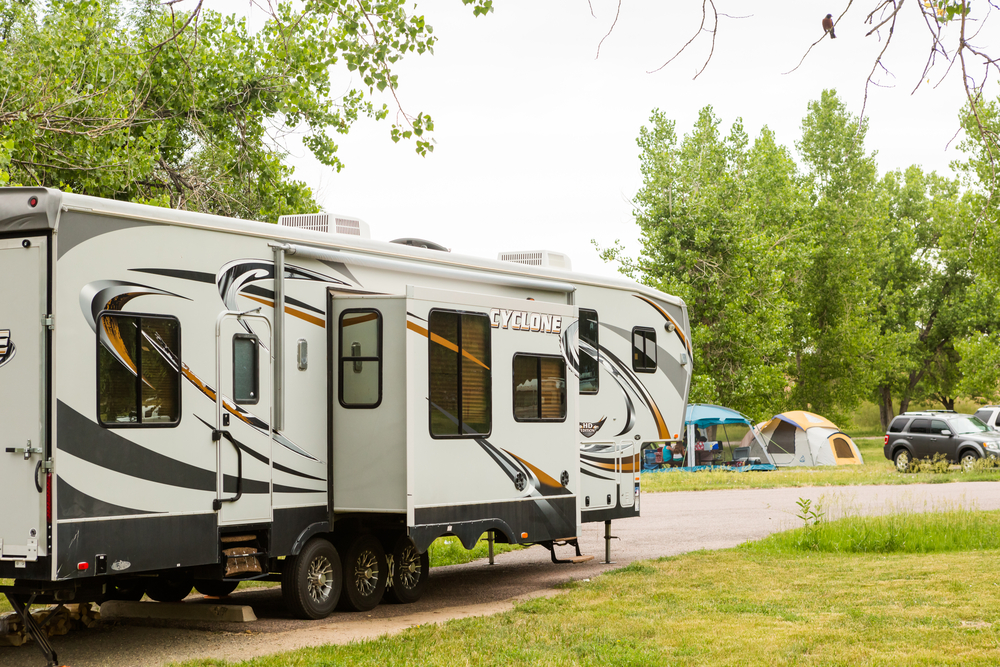
Understanding GVWR is essential for RVers because it ensures safety on the road. Overloading an RV beyond its GVWR can compromise your braking capacity and vehicle integrity, decrease acceleration and fuel efficiency, and increase wear and tear. By adhering to this weight limit, RVers can prevent potential accidents and prolong the lifespan of their rigs.
Did you know?
RVs are the only vehicles on the road operating at 100% capacity 100% of the time.
Semi-trucks have weight ratings, too, but they’re not always at full capacity – they travel back and forth to jobs, but not always full (and sometimes empty).
RVs, on the other hand, are always full to their maximum capacity, especially for full-time RVers.
Overloaded RVs can cause many problems – from wear and tear on your RV, tire issues, stress on your RV frame, and even worse: an increased potential for accidents.
An Expert’s View on GVWR for RVers
According to Escapees Education Director, Jim Koca:
“Gross vehicle weight rating (GVWR) is a term that every RVer should know for any vehicle or trailer they own. Vehicles and tires are designed to carry certain loads that consist of fuel, fluids, human cargo and, of course, our stuff. All vehicles and trailers on the road have a gross vehicle weight rating.
The GVWR is determined by the manufacturer and is the maximum weight that a vehicle or trailer can carry. The vehicle or trailer should never be loaded beyond what the manufacturer has listed on the Federal Data Plate. When the GVWR is exceeded, mechanical problems, tire failures, poor vehicle handling performance or increased stopping distance can occur and may result in an accident. In addition, there may also be legal and financial liability if you are operating the vehicle above the manufacturer’s gross vehicle weight rating. As an accident investigator, I have seen the disastrous results of vehicles and trailers exceeding their weight rating.”
Jim Koca
Jim Koca spent 42 years in accident reconstruction as a law enforcement officer, where many accidents occurred as a result of weight and tire issues. You can learn more about RV safety from Jim in the RV Foundations course through our online learning platform, RVers Online University.
Do you want to learn more about RV preventative maintenance so you can save yourself costly repairs and protect your investment?
Visit RVers Online University today to learn more about RV preventative maintenance, RV safety, and much more! Taught by RV-industry experts, RVers Online University helps you save money and enjoy life on the road.
How To Find GVWR On Your Vehicle or RV
There is a plate with information on every vehicle and RV, known as the federal data plate. To find the GVWR on your vehicle or RV, check inside the driver’s door sill for a plate with numbers and abbreviations, like GVWR.
If you have a travel trailer or fifth wheel, the data plate is typically located on or near the front of the trailer on the driver’s side.
How is GVWR Calculated?
GVWR (Gross Vehicle Weight Rating) is not something you calculate; rather, it is determined and set by the manufacturer. The GVWR represents the maximum allowable weight of a vehicle when fully loaded. It includes the vehicle’s curb weight (the weight of the vehicle itself without passengers or cargo) plus the weight of passengers, cargo, fuel, and any added equipment or accessories. Manufacturers determine GVWR based on the vehicle’s design, the strength of its frame, the capability of its axles, brakes, tires, and other components.
Data Shows Over Half of RVs Are Overweight
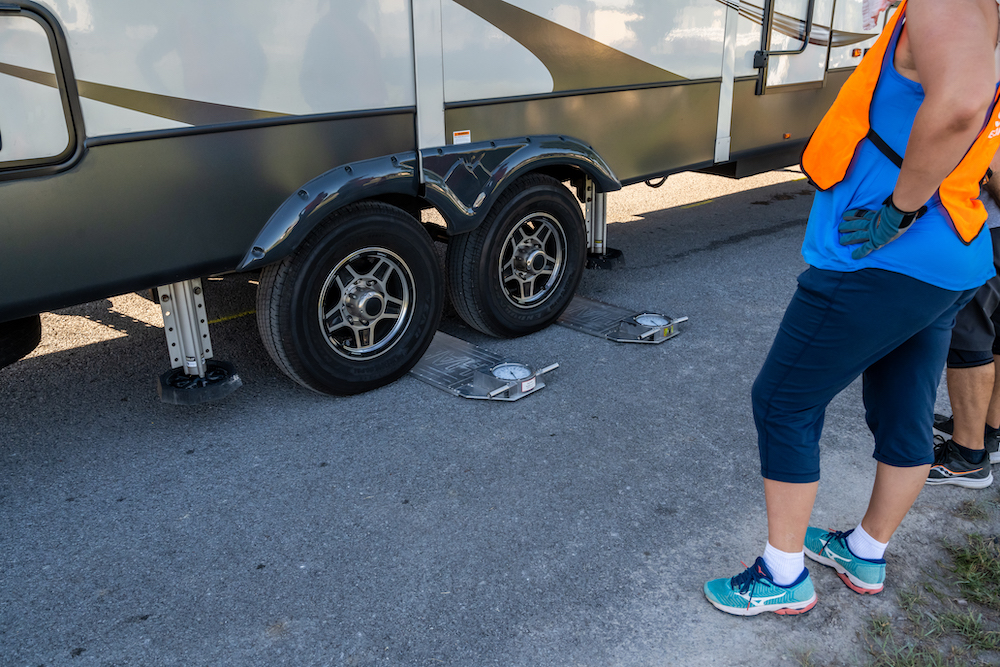
Looking at historical data of all RVs that have been weighed by SmartWeigh, a service that measures individual wheel weights, the data shows that approximately 57% of all RV types are overweight in some area.
The data shows that RVers are overloading their tires, axles, gross vehicle weight, or their gross combined weight ratings (GCWR).
SmartWeigh went to an RV rally for 5th wheels, and after weighing 35 RVs, 30 were found to have a weight issue. Many didn’t have a big enough truck to pull the RV, or the axles were overloaded on the RV.
Other Important Towing Terms to Know
In addition to Gross Vehicle Weight Rating, there are other abbreviations to know when it comes to determining weights, towing capacity, cargo carrying capacity, and more. Let’s take a quick look at these terms.
- GVWR (Gross Vehicle Weight Rating): The maximum allowable weight of a fully loaded vehicle, including its own weight plus passengers, cargo, and any added equipment.
- GCWR (Gross Combined Weight Rating): The maximum allowable combined weight of the towing vehicle and the towed vehicle (or trailer) combined, including passengers, cargo, fuel, and other equipment.
- GAWR (Gross Axle Weight Rating): The maximum weight that can be placed on a single axle, either the front or rear.
- Curb Weight: The weight of the vehicle in its natural state, without passengers, cargo, or any additional items. This includes fluids like oil and fuel.
- CCC (Cargo Carrying Capacity): The maximum weight of all personal belongings, occupants, and added equipment that can be safely added to the RV or vehicle.
- UVW or Dry Weight: The weight of the vehicle without any fluids (like water, fuel, or oil) or cargo. Essentially, the vehicle’s weight straight from the manufacturer.
- Payload: The maximum weight of passengers and cargo that a vehicle can safely carry. It’s the difference between the vehicle’s GVWR and its curb weight.
- Tongue Weight Rating: The maximum weight that the trailer can exert downward on the hitch/towing vehicle.
- Pin Weight: In fifth-wheel trailers, it’s the weight that presses down on the fifth-wheel hitch. It’s equivalent to the tongue weight but specific to fifth-wheel setups.
GVWR vs. Towing Capacity
GVWR (Gross Vehicle Weight Rating) denotes the maximum weight a vehicle can safely handle, including its own weight plus cargo and passengers. Towing Capacity, on the other hand, refers to the maximum weight a vehicle can pull behind it, such as a trailer or another vehicle, without compromising safety or performance.
How to Weigh Your RV and Tow Vehicle
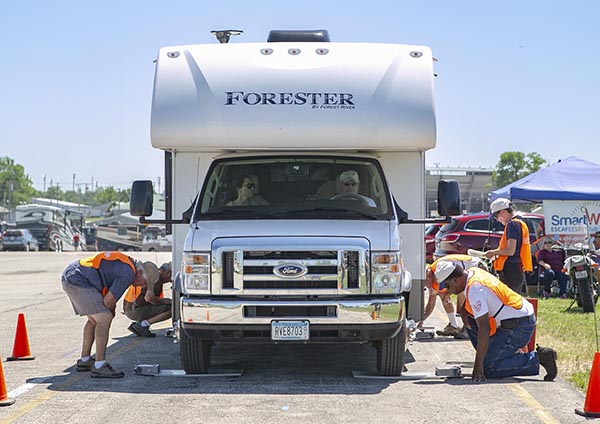
Weighing your RV and tow vehicle accurately is paramount to ensuring safety and optimal performance on the road. Not only does it help you adhere to legal weight limits, but it also prevents overloading, which can compromise vehicle integrity and fuel efficiency.
One of the most comprehensive and precise ways to weigh your RV is through the SmartWeigh program offered by Escapees RV Club. For those unfamiliar, SmartWeigh provides RV owners with detailed weight measurements, focusing on individual wheel positions to give a granular understanding of weight distribution. SmartWeigh offers a more detailed assessment than standard weighing methods. You can get the weight of your RV and tow vehicle together and separately to get a full picture of your RV weight and potential loading issues, plus you get a consultation with an RV weight and loading expert who will help you correct any issues.
To utilize SmartWeigh, start by scheduling an appointment at one of our SmartWeigh locations.
When you arrive, make sure your RV and tow vehicle are travel-ready, with full fuel, water, and propane tanks and all your regular travel items on board.
The unique aspect of SmartWeigh is its ability to measure individual wheel weights, allowing you to pinpoint imbalances and address them effectively. After the weighing process, you’ll receive a comprehensive report that provides insights into the weight distribution of different sections of your RV.
While SmartWeigh offers a detailed analysis, there are quicker alternatives like CAT scales at truck stops. These scales give an overall weight of your vehicle and are straightforward to use. Simply drive onto the scale, follow the instructions provided, and collect your weight ticket from the cashier.
Although less detailed than SmartWeigh, CAT scales provide a general overview that can be useful for on-the-go checks.
In all scenarios, understanding your RV’s weight and distribution is essential for the safety of both your traveling party and fellow road users.
What To Do If Your RV Is Over Your GVWR
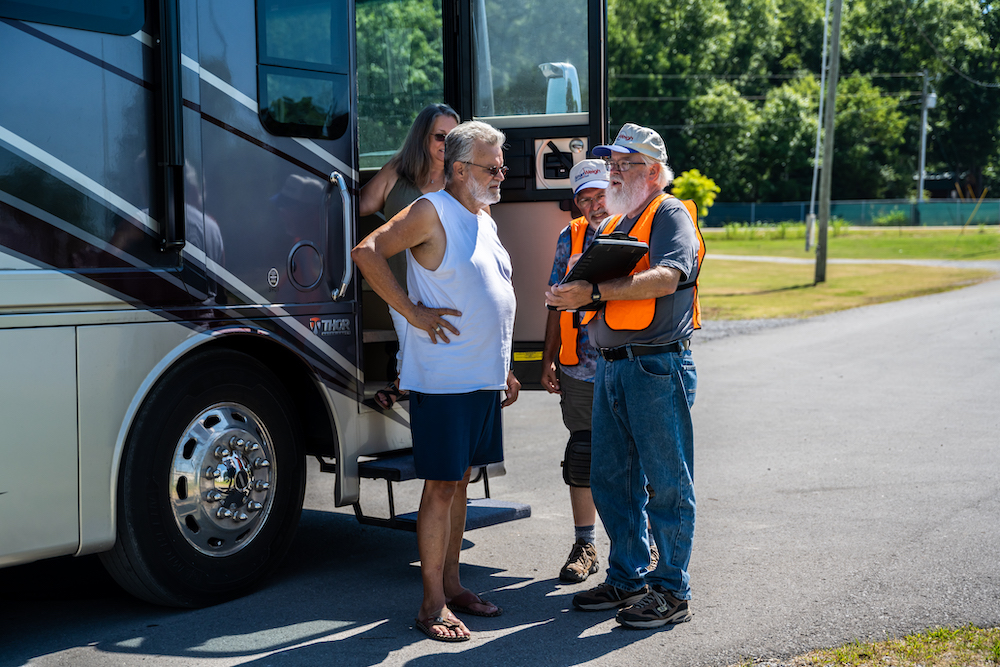
If you discover that your RV exceeds the GVWR, you can take steps to address and correct the issue. It’s crucial to address the issue promptly to ensure safety and maintain the integrity of your vehicle or trailer.
First, re-evaluate your load. If you have non-essential items, consider parting with them or removing them.
Ensure that the weight in your RV is evenly distributed. An imbalance can lead to handling issues, even if you fall within your gross vehicle weight rating. Check storage compartments, cabinets, and other space to see if items can be shifted to create a more balanced load.
Additionally, check your fluid levels. Full water tanks can add a significant amount of weight. One gallon of water weighs 8.34 pounds, and most larger RVs have multiple tanks that can hold 30 gallons or more. If you can get fresh water at your destination, consider traveling with empty tanks to save on weight.
Using our SmartWeigh service not only gives you a detailed weight analysis, wheel-by-wheel, but you will also get a one-on-one consultation with your weighmaster. Our highly qualified weighing professionals will provide expert guidance on addressing any weight and loading issues to help you create a balanced load that falls within your GVWR.
Make an appointment with the nearest SmartWeigh location today. If you want to learn more about RV safety, check out our RV Foundations course through RVers Online University.
Safe travels!
Download the Free RV Checklist Bundle So You Don't Forget a Thing!
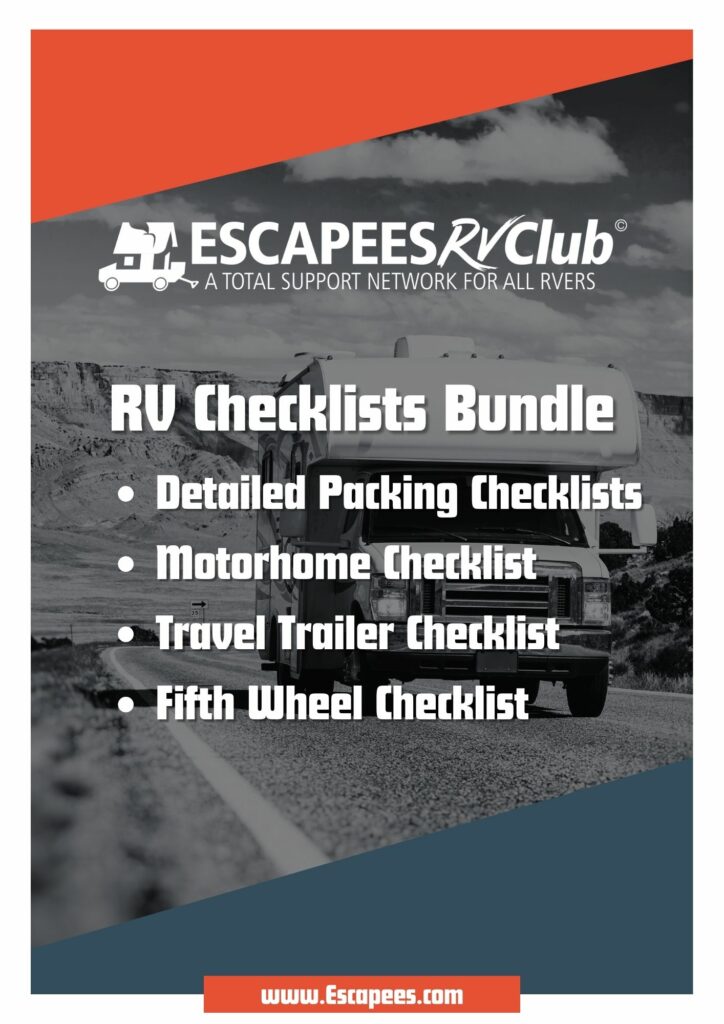
This RV Checklist bundle includes seven detailed checklists for RV life with a comprehensive RV Packing Checklist, RV Toolbox Checklist, RV Self-Inspection Checklist, RVing with Pets checklist, and Set-Up and Tear-Down Procedure checklists for motorhomes, fifth wheels, and travel trailers.

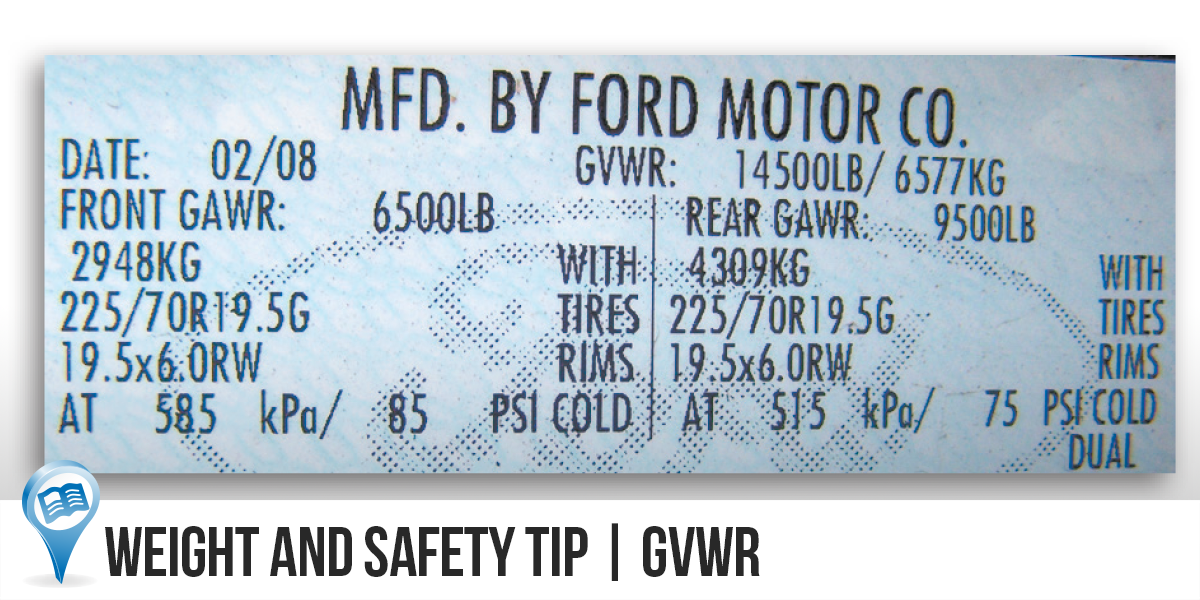
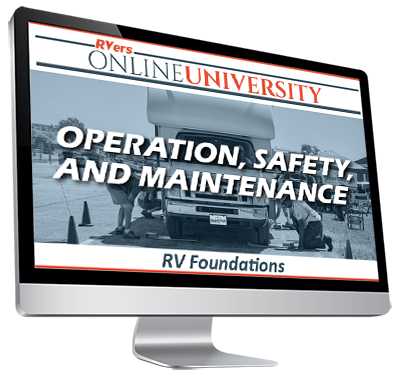



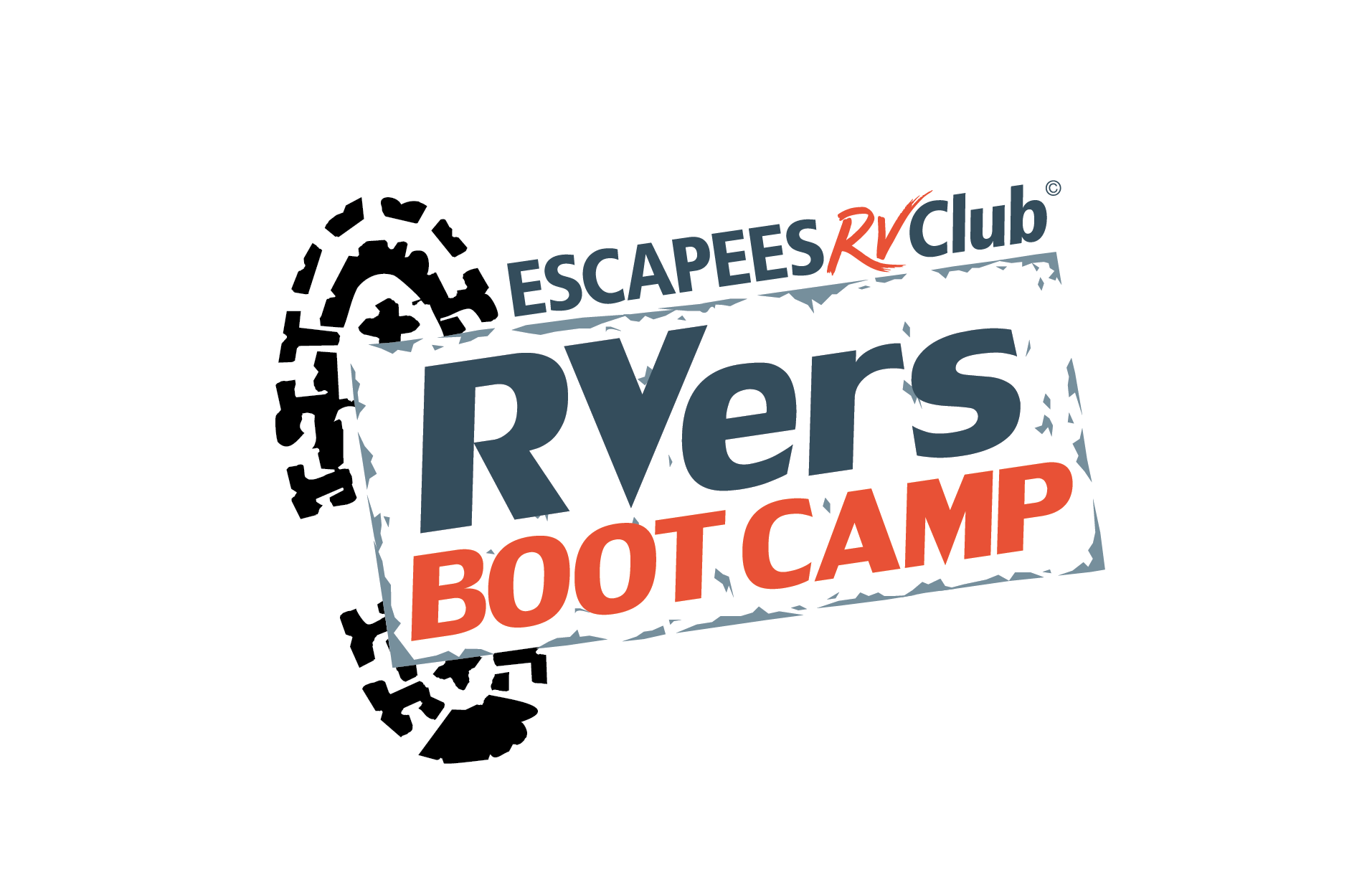



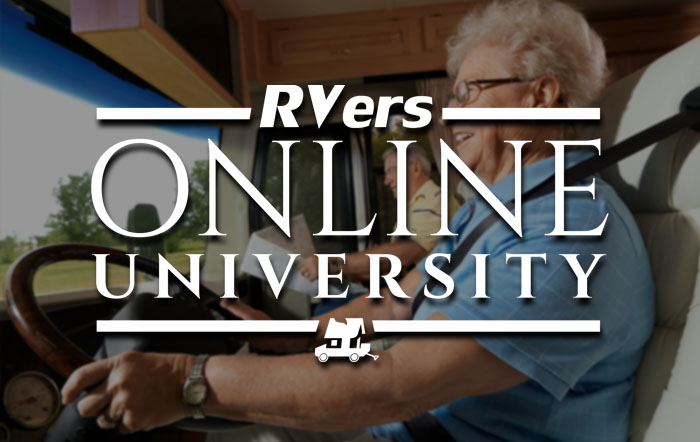

3 Responses
Thank you for your submission on GVWR we will use it in our February issue of Scope RV Camping Magazine http://www.clickoncamping.ca with credit of course to Escapees and a link to your website URL
Title 49, Subtitle B, Chapter V, Part 571, Subpart A, § 571.3 contains the legal definitions for the weights in this article. I also like the definition of a “Recreation vehicle trailer” in the same section.
https://www.ecfr.gov/current/title-49/subtitle-B/chapter-V/part-571/subpart-A/section-571.3